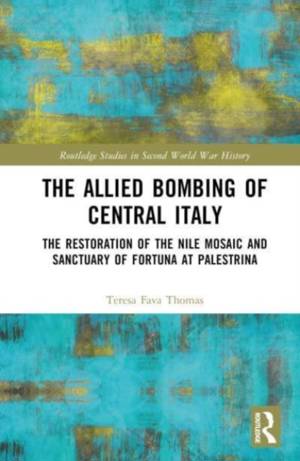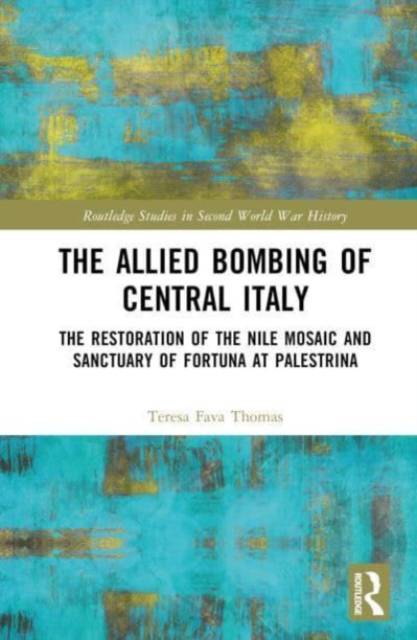
- Afhalen na 1 uur in een winkel met voorraad
- Gratis thuislevering in België vanaf € 30
- Ruim aanbod met 7 miljoen producten
- Afhalen na 1 uur in een winkel met voorraad
- Gratis thuislevering in België vanaf € 30
- Ruim aanbod met 7 miljoen producten
The Allied Bombing of Central Italy
The Restoration of the Nile Mosaic and Sanctuary of Fortuna at Palestrina
Teresa Fava ThomasOmschrijving
The Allied Bombing of Central Italy examines the results of the Second World War Allied bombing campaign on Palestrina and Rome, Italy, and the long-term impact of the war on the mountainside town and on the Barberini family's art collection including the Nile Mosaic. It explores the history and cultural significance of Palestrina, its strategic setting, the recovery of the town, the restoration of the Nile Mosaic, which remains the largest Egyptian-style mosaic extant.
A unique aspect of the destruction was that it uncovered a pagan temple, the Sanctuary of Fortuna. The bombing destroyed the homes built on its terraces but revealed the ancient structure buried beneath which had remained unseen for half a millennium. It took more than a decade for the mosaic to be restored and the Sanctuary of Fortuna established as a national archeological museum. The book explores the pressure by the Mussolini regime to control the Barberini family's art collection, the uses of cultural materials for propaganda purposes, the Allied use of airpower in the Italian theater of war, the postwar decision-making and recovery process.
The book is one of the very few long-range studies of the war's impact on a single Italian town. It is suitable for academic seminars and an educated general audience.
Specificaties
Betrokkenen
- Auteur(s):
- Uitgeverij:
Inhoud
- Aantal bladzijden:
- 182
- Taal:
- Engels
- Reeks:
Eigenschappen
- Productcode (EAN):
- 9781032494180
- Verschijningsdatum:
- 15/09/2023
- Uitvoering:
- Hardcover
- Formaat:
- Genaaid
- Afmetingen:
- 156 mm x 234 mm
- Gewicht:
- 453 g

Alleen bij Standaard Boekhandel
Beoordelingen
We publiceren alleen reviews die voldoen aan de voorwaarden voor reviews. Bekijk onze voorwaarden voor reviews.











